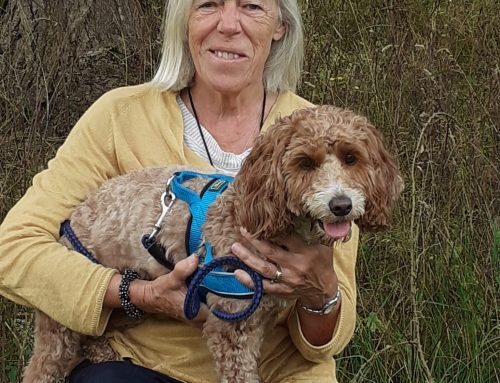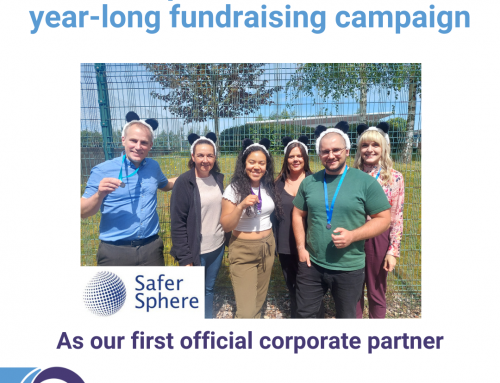15th May has been known as PDA Awareness Day for the last four years, but we decided that in its fifth year it was time to shift attention onto what action can be taken! So the focus of this newsletter is all about action …
Look out for lots of posts on Facebook and Twitter using the hashtag #PDAday.
New PDA ambassador
As we all know, the support an individual with PDA needs is unconventional and different to the support others may require. In place of firm boundaries and the use of rewards, consequences and praise, individuals with PDA respond better to an approach based on negotiation, collaboration and flexibility.
With the correct support in place, individuals with PDA can thrive. But the use of inappropriate support strategies can be ineffective, counter-productive and in some cases even damaging.
To help get this message across we’re introducing a new ambassador …

Just like individuals with PDA, giant pandas need very specific accommodations in order to thrive and may often suffer without appropriate support; are extremely sensitive to their environments; are very vulnerable; and show how an integrated approach to their care is essential for success.
Please share the image and our animation widely to help spread the word.
PDA Society conference – 18th April 2018 – save the date!
We’re delighted to announce that we’ll be holding our second conference in Birmingham on 18th April 2018. The conference will once again be for parents, carers and individuals with PDA. The theme will be ‘Our PDA Journey’ and speakers will include professionals, parents and individuals with PDA. Booking for tickets will open in the Autumn, please keep an eye on social media and our website for more details.
Momentum for change
The PDA Society has remained true to its origins as a parent-led support group, focussing on offering practical support and training and raising awareness. As much as our limited resources allow, we also campaign nationally and locally for greater recognition of the PDA profile and will be making this even more of a strategic priority going forward.
In the past year, we have made representations to the All Party Parliamentary Group on Autism, the Westminster Commission on Autism and supported parents in Scotland with a petition to the Scottish Government. We’re also the voice of parents at the PDA Development Group (a group of professionals who regularly meet and collaborate to promote further understanding, awareness and development of the PDA profile).
Local campaigning is also critical in terms of building momentum for change. A great example of this is currently under way in Hertfordshire. A survey of 38 families showed how desperate many families living with PDA felt and how in the majority of cases local services had been of little or no help. The results were published with the support of local autism charities and taken to the Hertfordshire All-Age Autism Partnership Board with a call to action calling for leadership on recognising PDA. We hope that this can serve as something of a ‘template’ for other areas and would be delighted to help anyone who wants to get a similar campaign going in their area.
This campaign in Staffordshire has resulted in an increased understanding of PDA at the top level with regular review meetings now being held with the local Clinical Commissioning Group regarding how to achieve greater recognition of this profile throughout CAMHS, for the purpose of how best to support children who present with the PDA profile.
There are other ways in which you can help take action …
- One really effective way to help keep PDA on everyone’s agenda is to comment on all the many pages/posts/articles on social and mainstream media about autism and draw attention to PDA. You could say something like “Further to your recent article/post, I wanted to make you aware of Pathological Demand Avoidance (PDA). PDA is part of the autism spectrum, though the strategies and adjustments needed are very different. Please see: http://www.pdasociety.org.uk/what-is-PDA“
- We can use the opportunity of the general election to raise the need for improved services with all the candidates and campaigners who’ll be on our doorsteps! You might want to ask specific questions like “Will you make autism a priority because I have PDA/I have a child with PDA?” or “Will you fight for more funding and training for CAMHS because I have PDA/I have a child with PDA?” and share what your experiences of local services have been. Or you could support the National Autistic Society’s “I’m One” campaign.
PDA Society activities & plans
Did you know that …
- the PDA Society runs an enquiry line for parents and professionals? Our enquiry line volunteers can answer PDA-related questions and concerns in a supportive, caring and confidential manner via email or phone. We help on average 125 people a month, and have been shortlisted for a BAPS Award in the Best Practical Support for Families category. Please don’t hesitate to get in touch with us.
- we’ve trained over 1,000 people across the UK and over 1,000 people from around the world registered for our inaugural webinars? Please see below for dates of future training courses and webinars.
- our practitioners’ booklet and leaflets for parents, teachers and early years practitioners are all downloadable from our website and we can send out hard copies on request?
Over the coming year, we’re planning to establish an enquiry line service for adults with PDA; work in partnership with other organisations in order to improve services; and help increase understanding of PDA through research.
Could you join Team PDA? The PDA Society is run by a small, dedicated team of trustees and volunteers who are all parents of children and young adults with PDA. We’re looking for more trustees and volunteers to join the team and help us move forward with our many projects. We’d love to hear from you if you’d like to help. Please email info@pdasociety.org.uk
PDA resources
There are many valuable resources on the PDA Society website, with new information being added on a regular basis. Recent additions include:
- a series of case studies which provide first-hand accounts about living with PDA from parents of children and teenagers as well as adults with PDA;
- resources relating to siblings of children with PDA, looking at the challenges of balancing the needs of individual children within the family unit and strategies to help
- links to recordings of our two part ‘Understanding PDA’ webinar. We’ll be running a series of webinars over the coming year on topics including diagnosis, mental health, family impact, education and one for adults with PDA.
Coming soon … Over the next few months we’ll be adding a new section with information for adults with PDA as we’re aware that there is very little information available currently; a look at PDA at different life stages and how presentation and strategies may evolve over time; and an exploration of the real and perceived difficulties in diagnosing PDA.
“A Guide to Mental Health Issues in Girls and Young Women on the Autism Spectrum” by Judy Eaton is due out in September and may be of interest.
DATES FOR YOUR DIARY
There are lots of PDA-related courses and events coming up – please see our website for more info.
Thank you for your interest and support. Please feel free to forward this newsletter to anyone you think may find it useful. And please help us to raise awareness, increase acceptance and take action on PDA!
The PDA Society





